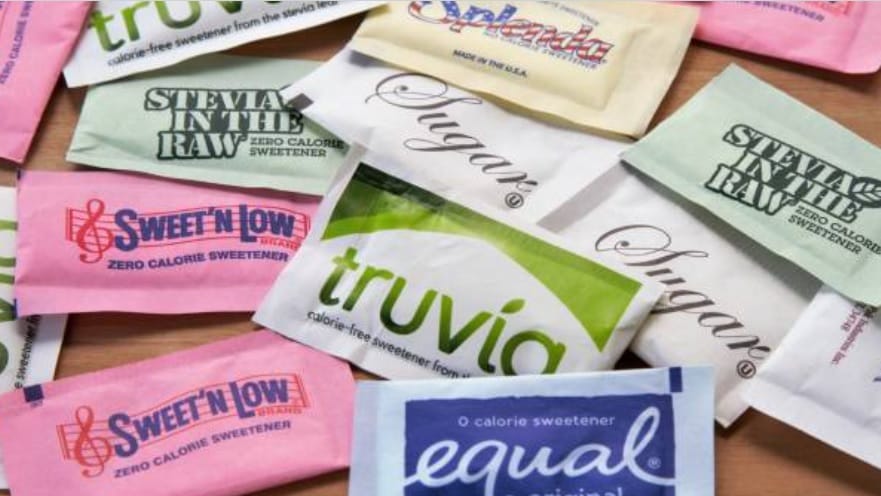The ketogenic (keto) diet has become incredibly popular for those looking to lose weight and improve overall health. One of the key principles of keto is reducing carbohydrate intake, which often means cutting out sugar. However, this doesn’t mean you need to give up sweets completely! Thanks to keto-friendly sweeteners, you can still enjoy your favorite sweet treats without the extra carbs.
In this blog post, we’ll explore the best keto sweeteners, explain why they are ideal for a low-carb lifestyle, and discuss how you can incorporate them into your diet. Whether you’re new to keto or simply looking for better sweetening options, this guide will help you make informed choices.
What Are Keto-Friendly Sweeteners?
Keto-friendly sweeteners are sugar substitutes that do not significantly impact blood sugar levels or contribute to your daily carbohydrate intake. On a ketogenic diet, your goal is to keep your body in a state of ketosis, where it burns fat for fuel instead of carbohydrates. High-carb sweeteners like sugar can disrupt ketosis, so alternatives are necessary.
Most keto sweeteners are low in carbs, have little to no glycemic impact, and don’t cause spikes in blood glucose levels. They can be derived from plants or created through chemical processes. The most popular keto-friendly sweeteners include sugar alcohols, natural plant-based sweeteners, and artificial sweeteners.
Why Avoid Regular Sugar on Keto?
Sugar is a carbohydrate, and a single teaspoon contains about 4 grams of carbs. Even small amounts can push you over your daily carb limit, which is typically around 20-50 grams on a standard keto diet. Sugar also causes a spike in blood glucose, leading to increased insulin production and effectively kicking you out of ketosis.
The following sweeteners provide a safe and tasty alternative for those following a ketogenic diet.
1. Stevia
Stevia is one of the most popular natural sweeteners on the keto diet. It’s derived from the leaves of the Stevia plant, native to South America. Stevia is virtually calorie-free and has zero carbs, making it ideal for keto enthusiasts.
Benefits of Stevia:
- Zero carbs: Stevia contains no carbohydrates, so it won’t impact your blood sugar levels.
- Very sweet: It’s about 200-300 times sweeter than sugar, so a little goes a long way.
- Natural: Stevia is plant-based, making it a great option for those looking for a natural sweetener.
How to Use Stevia:
Stevia is available in liquid, powder, or granulated form. You can use it to sweeten beverages like coffee or tea, in keto-friendly desserts, or as a sugar substitute in recipes. However, due to its intense sweetness, start with a small amount to avoid an overly sweet taste.
2. Erythritol
Erythritol is a sugar alcohol that occurs naturally in some fruits and fermented foods, though it is typically manufactured for commercial use. It’s widely used in keto-friendly products because it has almost no impact on blood sugar and contains only 0.2 calories per gram.
Benefits of Erythritol:
- Low carb: Erythritol contains about 0.24 calories per gram, with almost no net carbs.
- Mild sweetness: It’s around 70% as sweet as sugar, making it less intense but more palatable for some.
- No blood sugar spike: Erythritol does not significantly impact insulin or blood glucose levels.
How to Use Erythritol:
Erythritol is often used in baked goods because it mimics sugar’s bulk and texture. You can also use it in beverages, keto desserts, and even as a topping for fruit or yogurt. However, erythritol may cause a cooling sensation on the tongue, which some people find unpleasant.
3. Monk Fruit Sweetener
Monk fruit sweetener, also known as luo han guo, is another natural sweetener derived from a fruit native to southern China. It has been used for centuries in traditional Chinese medicine. This sweetener is becoming more popular in keto circles because it contains zero carbs and has no glycemic impact.
Benefits of Monk Fruit:
- Zero calories and carbs: Perfect for staying within your daily keto macros.
- No blood sugar effect: It won’t spike insulin levels or affect ketosis.
- Natural origin: It’s plant-based and free from synthetic chemicals.
How to Use Monk Fruit:
Monk fruit sweetener is available in liquid, granulated, and powdered forms. Like Stevia, monk fruit is much sweeter than sugar (up to 200 times), so you only need a small amount. Use it in your favorite keto recipes, from cakes to cookies, or simply sweeten your drinks.
4. Allulose
Allulose is a rare sugar found in small quantities in some fruits, such as figs and raisins. Unlike regular sugar, allulose is almost calorie-free and has minimal impact on blood sugar levels, making it an excellent option for the keto diet.
Benefits of Allulose:
- Low in calories: Allulose provides only 0.2-0.4 calories per gram.
- No effect on blood sugar: It has a minimal impact on glucose and insulin levels.
- Tastes like sugar: Allulose closely mimics the taste and texture of sugar, making it great for baking.
How to Use Allulose:
Allulose can be used just like sugar in a wide range of recipes. It caramelizes and browns similarly to sugar, making it ideal for keto-friendly baked goods. It’s also less likely to cause digestive upset compared to other sugar alcohols.
5. Xylitol
Xylitol is another sugar alcohol, commonly found in chewing gum, candies, and mints. It’s derived from plant fibers, often from birch trees or corn cobs, and contains fewer calories than sugar.
Benefits of Xylitol:
- Low carb: Xylitol has about 2.4 calories per gram and a glycemic index of 13, making it suitable for keto.
- Similar sweetness to sugar: It’s almost as sweet as sugar, which makes it a 1:1 substitute in recipes.
- Dental health: Xylitol has been shown to promote oral health by reducing the risk of cavities.
How to Use Xylitol:
Xylitol works well in beverages, baked goods, and other keto-friendly desserts. However, it’s important to note that xylitol is toxic to dogs, so keep any xylitol-containing products away from pets.
6. Sucralose
Sucralose, commonly sold under the brand name Splenda, is an artificial sweetener that’s popular in low-carb diets, including keto. It’s calorie-free and significantly sweeter than sugar.
Benefits of Sucralose:
- Zero carbs: Sucralose doesn’t contribute any carbohydrates, making it keto-friendly.
- Heat stable: You can use sucralose in cooking and baking without worrying about it losing sweetness.
- Very sweet: Sucralose is 600 times sweeter than sugar, so you only need a small amount.
How to Use Sucralose:
Sucralose is versatile and can be used in baking, beverages, or sprinkled over food. However, keep in mind that many commercial sucralose products contain fillers like dextrose or maltodextrin, which add carbs, so be sure to check the labels.
7. Swerve
Swerve is a popular keto-friendly sweetener blend that combines erythritol, oligosaccharides, and natural flavors. It tastes and measures like sugar, which makes it a convenient substitute in many keto recipes.
Benefits of Swerve:
- Zero net carbs: Swerve doesn’t contain any net carbs, as the erythritol passes through the body undigested.
- Tastes like sugar: The flavor is very similar to regular sugar, making it a good option for those transitioning to keto.
- No blood sugar impact: Like other sugar alcohols, Swerve won’t affect insulin or glucose levels.
How to Use Swerve:
Swerve is ideal for baking and cooking because it has the same texture and sweetness as sugar. You can use it as a 1:1 replacement for sugar in most recipes.
Honorable Mentions: Other Keto Sweeteners
Aside from the sweeteners mentioned above, there are other options that keto dieters may want to consider. While they are not as widely used, they still offer great alternatives to sugar.
1. Yacon Syrup:
Yacon syrup is derived from the roots of the yacon plant and is rich in prebiotic fiber. While it contains some carbs, they are mainly in the form of fructooligosaccharides, which are not fully digested by the body.
2. Tagatose:
Tagatose is a low-calorie sugar substitute that tastes very similar to sugar. It’s low on the glycemic index and doesn’t cause significant spikes in blood sugar levels.
3. Glycerol (Glycerin):
Glycerol is a type of sugar alcohol that provides sweetness with minimal impact on blood sugar levels. It’s often used in liquid sweeteners and can be a good option for certain recipes.
How to Choose the Best Keto Sweetener for You
When choosing the best keto sweetener, it’s important to consider your personal taste preferences, the specific needs of your recipes, and any potential side effects. Some sweeteners, like erythritol and monk fruit, are great for people who prefer natural options, while others like sucralose might be better for those who prioritize convenience and zero-calorie intake. Here are some factors to keep in mind when selecting the best keto sweeteners for your needs:
1. Taste
Sweeteners can vary significantly in taste. For example, Stevia and monk fruit are much sweeter than sugar and may have an aftertaste, which some people find off-putting. On the other hand, erythritol and allulose have a more sugar-like taste and are often better tolerated by those with sensitive taste buds. Try experimenting with different options to find which one tastes best for you.
2. Baking and Cooking
Not all sweeteners work well in cooking or baking. Some, like Stevia and monk fruit, are intensely sweet and lack the bulk and texture that sugar provides, which can affect your recipes. Erythritol and allulose are better for baking since they caramelize and provide similar texture to sugar. Keep in mind that some sweeteners, like sucralose, may lose sweetness when exposed to high temperatures.
3. Carb Content
While most keto-friendly sweeteners are very low in carbs, it’s essential to check the nutritional information, especially for blends and commercial products that may contain fillers or other ingredients that add carbs. Always look for the “net carbs” content, which subtracts fibers and sugar alcohols that don’t impact blood sugar levels.
4. Glycemic Index
Some sweeteners, such as xylitol, have a low glycemic index but still cause a small rise in blood sugar. If you’re particularly sensitive to even slight insulin spikes, you may want to avoid these options and opt for zero-glycemic sweeteners like Stevia or erythritol.
5. Digestive Effects
Certain sugar alcohols, especially in large amounts, can cause digestive upset, including bloating, gas, and diarrhea. Erythritol is generally well-tolerated, but others like xylitol and sorbitol may cause discomfort. If you have a sensitive stomach, it’s best to start with small amounts and see how your body reacts.
6. Allergies and Sensitivities
If you have food sensitivities or allergies, you should carefully read labels to ensure your sweetener doesn’t contain potential allergens. For example, some xylitol products are derived from corn, which can be an issue for those with corn allergies. Monk fruit and Stevia, being plant-based, are generally hypoallergenic.
YOU MAY ALSO LIKE: Keto Bread: Guide for Low-Carb Dieters
How to Incorporate Keto Sweeteners into Your Diet
Once you’ve chosen the best keto sweetener for your needs, the next step is learning how to incorporate it into your meals and treats. Here are some practical ideas for using keto-friendly sweeteners in your everyday cooking and baking.
1. Sweetening Beverages
One of the simplest ways to start using keto sweeteners is by adding them to your beverages. Whether you’re drinking coffee, tea, or keto-friendly smoothies, adding a small amount of your preferred sweetener can give your drink the perfect touch of sweetness. Liquid sweeteners like Stevia or monk fruit are especially convenient for drinks.
2. Baking Keto Treats
Baking on a keto diet can be a bit challenging without regular sugar, but many sweeteners like erythritol, allulose, and Swerve work well in most keto dessert recipes. From keto cakes and cookies to brownies and muffins, you can create delicious low-carb versions of your favorite treats. Just remember to adjust the sweetener measurements based on sweetness intensity—some sweeteners are much sweeter than sugar, so you’ll need less.
3. Making Keto Syrups and Sauces
You can make homemade keto-friendly syrups and sauces using sweeteners like allulose or Swerve. These sweeteners dissolve easily in liquid, making them perfect for creating sugar-free syrups for pancakes or drizzling over keto desserts. You can also use them to make sweet sauces, like a sugar-free caramel sauce or chocolate syrup, to top your keto-friendly treats.
4. Adding to Keto Smoothies
If you’re a fan of smoothies, adding a small amount of keto sweetener can enhance the flavor without adding carbs. Liquid Stevia or powdered monk fruit are ideal for this because they blend seamlessly with other ingredients. Add in your favorite low-carb fruits, almond milk, and keto-friendly protein powder, and you’ll have a delicious, sweet keto smoothie.
5. Cooking Savory Dishes
While we often associate sweeteners with desserts, they can also be used in savory keto dishes. For example, a touch of sweetener can balance out the acidity in tomato-based sauces or add complexity to marinades and salad dressings. Allulose and erythritol work well for these applications because they don’t have a strong aftertaste.
Common Mistakes to Avoid When Using Keto Sweeteners
When using keto sweeteners, it’s easy to make mistakes that can affect your keto journey. Here are some common pitfalls to avoid:
1. Overconsumption
Even though most keto-friendly sweeteners have little to no impact on blood sugar, consuming them in large amounts can still lead to digestive issues and cravings for sugary foods. It’s important to use sweeteners in moderation to avoid these side effects.
2. Not Reading Labels
Many store-bought keto products contain hidden carbs or sweeteners that can affect your ketosis. Always read ingredient labels carefully to ensure the sweetener you’re using is truly keto-friendly and doesn’t contain additives like maltodextrin or dextrose, which can spike blood sugar.
3. Relying Too Much on Sweeteners
While sweeteners can be a helpful tool for satisfying your sweet tooth on keto, relying too much on them can lead to an unhealthy relationship with sweet foods. Try to use them sparingly and focus on whole, nutrient-dense foods like vegetables, healthy fats, and proteins.
4. Using the Wrong Sweetener in Baking
Not all sweeteners work the same in baking. For example, Stevia doesn’t provide the bulk and texture that sugar does, which can affect the final product. Be sure to choose the right sweetener for your recipe, or consider using a combination of sweeteners for better results.
Final Thoughts on the Best Keto Sweeteners
Keto-friendly sweeteners make it possible to enjoy sweet foods without sacrificing your low-carb lifestyle. Whether you prefer natural options like Stevia and monk fruit or sugar alcohols like erythritol and allulose, there’s a sweetener for every taste and cooking need. The key is to experiment with different sweeteners, find what works best for you, and use them in moderation.
Choosing the best keto sweeteners ultimately depends on your taste preferences, cooking habits, and dietary goals. Whether you’re looking to sweeten your morning coffee or bake a batch of keto-friendly cookies, the right sweetener can make all the difference. Just remember to read labels carefully, avoid hidden carbs, and listen to your body’s response to different sweeteners.


